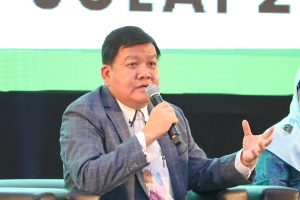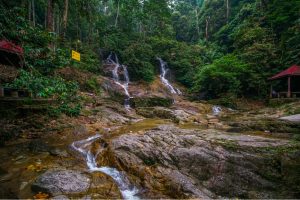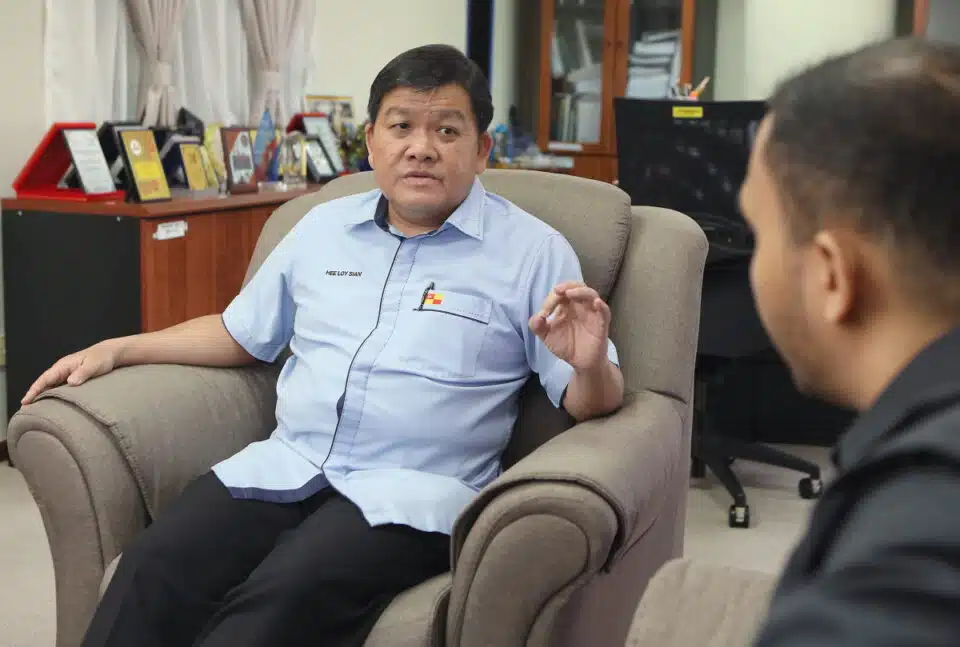By Selangor Journal Team
SELANGOR is poised to reduce its overall carbon footprint and be at the forefront of sustainable development in green technology, says Tourism, Environment, Green Technology and Orang Asli Affairs Committee chairman Hee Loy Sian.
Recognising the urgent need to address environmental challenges, the state government has embarked on a comprehensive plan to promote renewable energy, energy efficiency, and eco-friendly practices across various sectors.
Hee mentioned that these initiatives fall under the purview of the First Selangor Plan (RS-1), which aims to decrease carbon emissions in the state’s urban areas and municipalities by 40 per cent by 2035, with the ultimate goal of achieving zero carbon emissions by 2050.
However, he pointed out that the primary hurdles confronting green technology are the limited awareness of its potential and the inadequate infrastructure required for the sector to thrive.
“At present, the primary contributors to carbon emissions in Selangor are public transport, power plants, and industries. The current challenge lies in promoting the adoption of electric vehicles (EVs) as a solution for public transportation.
“In terms of EV cars, I think local car companies might come up with attractive models under RM100,000 and give Malaysians more options. However, the availability of charging stations poses another obstacle.
“Local councils are actively involved in addressing this challenge, collaborating with the private sector to build more charging stations.
The aim is to provide convenient access for the public and encourage the transition from petrol-powered cars to electric ones.

“But the process of shifting from traditional cars to EVs is a gradual one and requires time for widespread adoption,” he said in an interview with Selangor Journal.
Hee also highlighted additional complex challenges related to charging speed and cost at these stations, along with the task of building charging infrastructure in high-rise residential apartments.
Regarding policy, Hee anticipates the formulation of a comprehensive national policy by the Federal government to support green technology and its ecosystem.
He further opined that such a policy would aim to encourage the widespread adoption of renewable energy sources, such as solar power, with the objective of reducing reliance on fossil fuels and promoting cleaner and more sustainable energy alternatives.
The RS-1, the state’s development framework for a five-year period, features more than 200 projects aimed at benefiting the people and propelling the state towards a high-tech future.
It incorporates both private and public initiatives, including those led by the Federal government such as the light rail transit (LRT) project.
Notably, the plan also incorporates key projects initiated by the state government, such as the deepening of Sungai Klang, a vital waterway, and the Raw Water Security Scheme or SJAM.
The latter, slated for completion by year-end or 2024, aims to put an end to river pollution and ensure a sustainable supply of clean water for the Klang Valley.
Protecting the ecosystem
As the exco in charge of environmental affairs, Hee is committed to protecting Selangor’s biodiversity and is passionate about expanding the area designated as permanent forest reserves within the state.
His target is to ensure that a minimum of 33.3 per cent of the state’s land is officially gazetted as permanent forest reserves. Currently, Selangor already has 32.5 per cent of gazetted forest land, reflecting the progress made in this conservation effort.

“But not all of these lands consist of forested jungles. Some are used for agricultural purposes, some are used by utility companies to build power lines or water pipes,” he said.
Hee explained that by expanding the area of permanent forest reserves, Selangor can safeguard valuable ecosystems, protect biodiversity, mitigate climate change, and promote sustainable land use practices. These forested areas play a crucial role in maintaining the ecological balance, providing habitats for wildlife, preserving water resources, and offering recreational opportunities for the public, Hee said.
However, he acknowledges that the state’s rapid development poses a complex dilemma, as there is a need to strike a balance between economic growth and environmental conservation.
“Whatever the case may be, we can’t reduce the number of forest reserves in the state as we need more water catchment areas, and this directly impacts the water supply in the state.
“So our target is at least one-third of the state being a forest reserve.”
The cost of conservation
Since 2010, Selangor has implemented the moratorium on logging, which is set to continue until 2035.
Hee said that the moratorium serves as a crucial measure to protect the state’s forests and ensure their long-term sustainability.
“This is also part of our commitment to preserving the environment, but it remains a difficult task.”
Previously, Hee revealed that Selangor incurred a significant financial loss of RM77 million in its effort to impose the 25-year moratorium.
The state faced legal challenges from logging companies during this period, resulting in financial settlements. In one case, the state had to pay RM51 million to a logging company after losing a legal battle.
After the incident, a second company approached the state and requested RM35 million. The sum was eventually negotiated to RM26 million.
Hee revealed that there are other cases pending. Conflict with a third, fourth, and fifth logging company awaits resolution. These financial settlements are a direct consequence of the logging moratorium, indicating the high cost incurred by the state when adhering to environmental preservation measures.
Despite the financial implications, Hee emphasised that the state remains steadfast in upholding the moratorium.
The challenges and costs associated with legal disputes serve as a reminder of the importance of responsible forest management and sustainable practices in safeguarding the environment for future generations, said Hee.
Selangor has implemented a policy to ensure that any forest reserves that have been degazetted for development are replaced with land of equal or greater value.
This approach ensures that the overall area of protected land does not decrease, but rather, grows over time.
The state government is committed to championing this policy, recognising the importance of preserving natural resources and maintaining a balance between development and environmental conservation.
Menteri Besar Dato’ Seri Amirudin Shari has previously emphasised that this comprehensive management approach also extends to Malay reserve land, where “the lands replaced exceed that which is taken”.
This article first appeared in the Selangor Journal monthly June 2023 edition, published on June 3, 2023.





